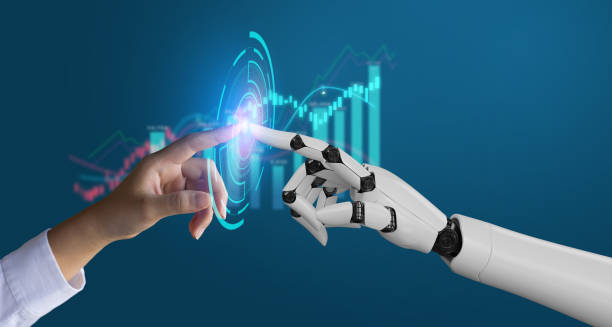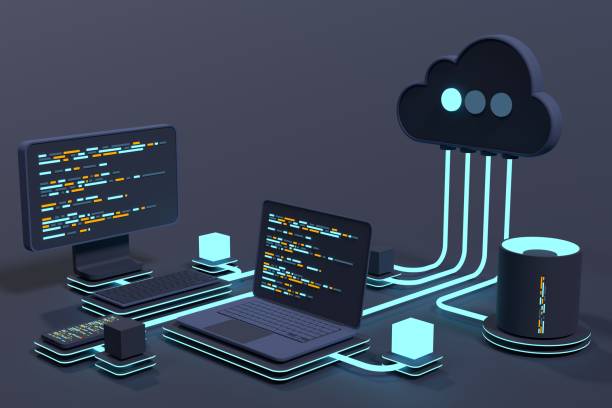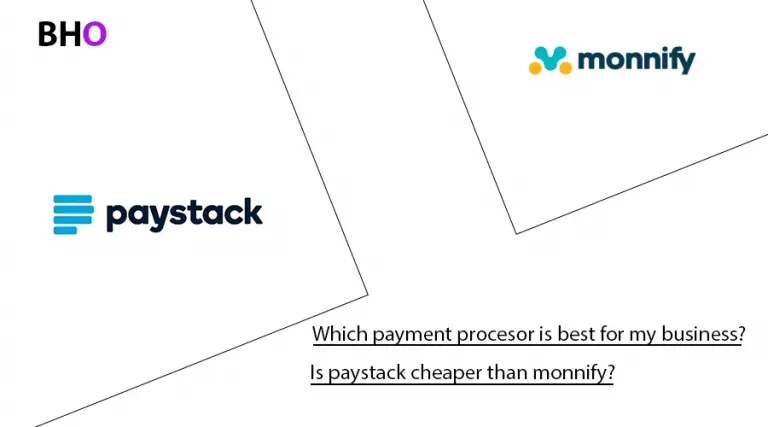The AI advantage- 10 Powerful Ways Leading Businesses are Using AI.
This article discusses various methods of AI fusion in business.

Table of Contents
Introduction
It was particularly hard to miss the hype surrounding generative AI & other technologies throughout 2023. Some might have dismissed it as a passing trend, but the latest statistics tell a different story. It’s clear now that artificial intelligence is rapidly transforming the business landscape.
With the advent of AI technology, many companies like Goldman Sachs predicted last year that it could boost GDP, and raise labor productivity growth over the coming decade. Having this in mind, the number of employees who use AI to reduce their workload is expected to soar, freeing many to focus on higher level cognitive work.
In this article, we explore several key avenues through which AI can be effectively infused into business processes.
1. Customer Service Enhancement through Chatbots and Virtual Assistants:
- Chatbots: AI-powered chatbots and virtual assistants, like ChatGPT and Google’s Dialog Flow, have become crucial for providing 24/7 customer support. They can handle routine inquiries, assist in troubleshooting, and even complete transactions, allowing human agents to focus on more complex issues.

- Use Case: Companies like H&M use chatbots to recommend products based on customer preferences, streamlining the shopping experience and improving customer satisfaction. Another notable example is Expedia, which has integrated ChatGPT into its travel-planning tool. This allows users to create personalized itineraries by starting a conversation within the app. This seamless interaction fosters a more engaging and satisfying shopping experience. A study examining the impact of AI tools on productivity revealed that customer service support agents handled 13.8% more customer inquiries per hour, business professionals could write 59% more work-related documents per hour and programmers could code 126% more projects each week.
2. Predictive Analytics for Improved Decision-Making:
Machine learning in e-commerce supports predictive analytics. This allows businesses to anticipate customer needs. Predictive analytics, backed by AI, forecasts inventory needs by analyzing historical data and demand patterns. This technology boosts inventory accuracy by 40-50%. It minimizes stockouts and overstocking, making inventory and supply chain management more reliable.
- Data-Driven Insights: AI’s predictive analytics can analyze vast datasets to forecast trends, customer behavior, and market shifts. This helps businesses make informed decisions, and tailor marketing strategies.
- Use Case: Netflix employs predictive analytics to recommend content based on viewing history, significantly increasing user engagement and retention rates.

3. Automation of Routine Tasks:
- Robotic Process Automation (RPA): AI-driven RPA automates repetitive and time-consuming tasks, such as data entry, order processing, and customer onboarding. This reduces operational costs and increases efficiency.
- Use Case: Banks like JP Morgan use RPA for processing loan applications, cutting down the time taken from weeks to mere hours.
4. Personalized Marketing and Targeted Advertising:
Customer Insights: AI helps in segmenting audiences and creating highly personalized marketing campaigns. By analyzing user behavior and preferences, businesses can craft messages that resonate with specific customer groups.
- Use Case: Amazon’s recommendation engine, powered by AI, analyzes purchase history and browsing behavior to suggest products, driving significant upsell opportunities and increasing sales.

5. Supply Chain Optimization:
- Demand Forecasting: AI can predict demand, manage inventory, and optimize the entire supply chain, reducing waste and ensuring timely delivery. It is particularly useful in industries like retail, manufacturing, and logistics.
- Augmenting Human Decision-Making with AI in Inventory Management: In today’s fast-paced market, AI significantly enhances inventory management by improving decision-making. It uses advanced algorithms and machine learning to predict stock needs and automate replenishment. This data-driven approach ensures a more efficient inventory management system.
Integrating AI into inventory management offers numerous benefits. Here is how:
- Automated Reordering Systems: AI-driven automated reordering systems streamline inventory management by triggering timely replenishments. They use real-time data to automate the process. This automation cuts manual processing time by 60-70%. Businesses can then develop enhanced responsiveness to market changes with real-time insights. Using AI to augment human decision-making in inventory management optimizes stock levels and cuts costs. It also boosts business agility, leading to a more efficient and adaptable supply chain.
- Use Case: Walmart utilizes AI to forecast product demand, optimize stocking processes, and reduce shortages. This leads to reduced operational costs, enhanced supply chain efficiency and higher customer satisfaction.

6. Fraud Detection and Security:
Ecommerce is set to account for 21.8% of global retail sales by 2026. While this shift to digital allows customers to purchase products with more convenience than ever before, it also increases your business’s exposure to sophisticated fraud.
A survey found that 80% of organizations feel more susceptible to rising online fraud due to digital advancements.
- Real-Time Analysis: AI models can analyze transaction patterns to identify potential fraud, protecting businesses from financial losses. AI is also employed in cybersecurity to detect threats and automate responses to breaches.
- Use Case: PayPal leverages AI algorithms to detect fraudulent activities in real-time, offering enhanced security for millions of transactions each day. E.g. The machine learning algorithm used by PayPal can prevent Signup fraud, login fraud and payment fraud. I.e Machine learning can quickly analyze previous transaction data and identify anomalies that may indicate fraud.

7. AI-Driven Product Development:
- Innovation through Machine Learning: AI can analyze customer feedback and market trends to inspire new product ideas. It can also simulate different scenarios to test product concepts, reducing time to market.
- Use Case: Coca-Cola uses AI to analyze social media data, helping to identify new flavor trends and develop products like Coke with Coffee.

8. Human Resources and Talent Management:
- AI in Recruitment: AI tools can screen resumes, schedule interviews, and even assess candidate skills through automated tests, improving hiring efficiency. Additionally, AI-powered platforms can analyze employee engagement and predict turnover.
- Use Case: Unilever utilizes AI to screen applicants through video interviews and chatbots, saving time and reducing bias in the recruitment process.

9. Safety Control:
- AI can identify hazards and can ensure compliance with safety protocols. AI-powered safety systems use a combination of sensors, cameras, and data analytics to monitor environments. They are super efficient at detecting anomalies that could pose potential threats. These systems can analyze vast amounts of data from multiple sources simultaneously, allowing for the quick identification of issues that humans may otherwise miss.
- Use cases: Boeing employs AI to detect anomalies in aircraft sensors and analyze data collected from flights. This predictive maintenance approach has led to improved flight safety by identifying potential issues before they cause serious problems. Boeing’s integration of AI in its operations ensures that aircraft are consistently operating at optimal safety levels.

- Tesla utilizes AI in its Autopilot system to enhance vehicle safety by continuously monitoring road conditions and driver behavior. This proactive safety measure has resulted in fewer accidents. Tesla’s AI system can take control of the vehicle to avoid potential collisions, making driving safer for everyone.

10. AI-Powered Financial Forecasting and Management:
- Financial Analytics: AI can help businesses better understand their financial data by forecasting revenues, managing risks, and optimizing pricing strategies. It is especially beneficial for startups and enterprises in competitive markets.
- Use Case: Goldman Sachs uses AI to analyze trading data and make investment decisions, enabling faster and more accurate financial insights.
In conclusion, AI offers businesses diverse ways to improve their operations, from streamlining routine tasks to gaining deeper insights into customer behavior. By integrating AI strategically, companies can maintain a competitive edge in their industry, drive innovation, and achieve long-term success.
References
- AI is showing “very positive” signs of eventually boosting GDP and productivity | Goldman Sachs
- The human side of generative AI: Creating a path to productivity
- AI For Business – Here’s How You Can Transform Yours – Impala Intech
- How Humans and AI Can Work Together in E-commerce.
- Global e-commerce share of retail sales 2027 | Statista
- The true cost of online fraud
- The power of machine learning for payment fraud detection | PayPal US
- Data Personalization – The Secret Sauce to Building a 5-Star Business







